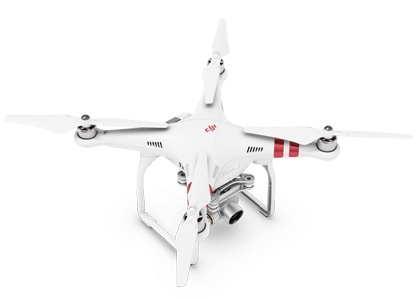
China Daily reports that “[the] fast-growing consumer drone industry should not copy the model of personal computer and smartphone businesses where one chip company controls nearly the whole market, said a senior official from DJI Technology Co Ltd.” Speaking to China Daily Shao Jianhuo, vice-president of DJI said “If only one company controls nearly the whole market with excessively high royalty payments, it will harm technology innovation of the whole industry.” The concern ostensibly focuses on Intel and Qualcomm, two chip makers that are investing heavily in the drone market.
This statement regarding a monopoly in drone chips is coming from a company that may itself become a monopoly in drone manufacturing. DJI is a dominant player in both the consumer and commercial UAV markets. China Daily writes that they control about 70% of the commercial drone market. One might argue that the dominance of a single manufacturer could also harm the technology innovation of an entire industry. DJI recently filed a patent infringement suit against Hong Kong competitor Yuneec, a company that Intel has invested $60 million into.
Intel is intent on entering the industry. In addition to investment in Yuneec. Intel recently announced its Aero platform for UAVs. A major element of the developer boards is the RealSense 3D camera, which will ship with the kits and help the robots and drones navigate and avoid obstacles. The depth-sensing camera can recognize items and determine the size, shape and contours of objects. They have acquitted Ascending Technologies a German based drone manufacturer and also invested in PrecisionHawk which offers sophisticated drone driven solutions data collection and analysis.
Qualcomm is also getting into the act with its Snapdragon Flight platform. In addition, Qualcomm Ventures has an investment stake in Berkeley based 3D Robotics. 3D Robotics has had a tough row to hoe lately. They’ve experienced lay-offs and are pivoting to focus on the commercial market. In an interview with MarketWatch, Chris Anderson of 3DR said the compnay was moving to the commercial market due to heavy competition in the consumer drone marketplace. “DJI is doing great, it’s because they are moving so fast, it’s forcing the others to adapt. Some companies are adapting by leaving, and others are adapting by moving upstream to the enterprise, which was always our plan. And [that move] is just accelerating right now.”
When asked whether DJI, which controls 70 percent of the world’s civilian drone market, would develop its own chips for drones, Shao said: “We will keep a close eye on chip technology development and cooperate with various chip companies.”
In another news item, this one from Bloomberg Business, DJI stated that it would turn over user’s data records to the Chinese Government. Bloomberg writes:
SZ DJI Technology Co., the world’s largest maker of small civilian drones, said it’s in discussions with Chinese government officials keen to gain access to the trove of data its airborne devices siphon up via its app. That includes location, flight records and possibly video shot by users and uploaded to its servers, said Zhang Fanxi, a spokesman for the company.
DJI subsequently released a statement to clarify how it interacts with authorities, which it said is consistent with the privacy policy on its app and website. “Should DJI receive a valid legal request from a government agency, we may provide user information to that agency, just as other companies do, ” spokesman Oliver Wang said in the statement. “That is the case in the U.S., China or anywhere in the world where a valid legal request is made by authorities.”
Well, not exactly. Here in the US smart phone manufacturer Apple has been a little less than cooperative with federal authorities regarding access to phone data.
The Bloomberg article quotes Professor John Bacon-Shone, Associate Dean of Social Sciences at The University of Hong Kong, “It’s a very intrusive form of surveillance,” said . “It’s one thing if it only applies to DJI’s products inside China, but what if it’s outside of China?”
“If people do not trust that this will only apply inside the mainland, I think it will have a major impact on the company.”
Frank Schroth is editor in chief of DroneLife, the authoritative source for news and analysis on the drone industry: it’s people, products, trends, and events.
Email Frank
TWITTER:@fschroth
